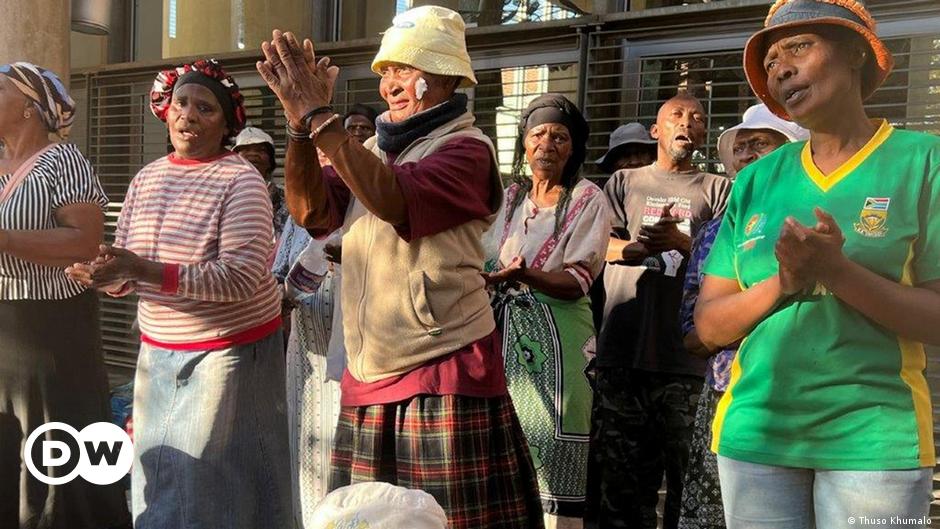Thirty years after the end of apartheid, dozens of South Africans have set up a protest camp outside the Constitutional Court. They are demanding reparations for human rights abuses suffered under white minority rule.
The voices of some 50 elderly protesters are heard echoing in song across the grounds of South Africa’s Constitutional Court in Johannesburg, the commercial heart of South Africa. They are demanding justice and reparations for abuses suffered under apartheid — 30 years after the country became a democracy.
They are all members of the Khulumani Support Group and the Galela Campaign — two groups fighting for financial redress for the victims of white minority rule under apartheid.
The protesters say that since they weren’t identified as victims of human rights abuses during apartheid by South Africa’s Truth and Reconciliation Commission (TRC), led by the late Archbishop Desmond Tutu 28 years ago, they haven’t benefited from any reparations paid out by the government to date.
While the group has protested in front of the court intermittently for years, their permanent camp outside the Constitutional Court only started in November 2023.
South Africa suffers from massive distribution issues, and I’m talking about money here. Apartheid was a part of creating an oligarchy that has central ownership of resources.
What they should be demanding instead is to nationalise these resources as a sovereign wealth fund, maybe even copy-paste what Norway did to their fund, and also how they regulated all forms of manufacturing to require certification and diplomas, with strict punishment for executives who break the law.
Reperations would be nice, but it won’t even come close to solving the massive poverty issue, which is intrinsically tied to the centralisation of ownership.
South Africans will never see the light ay the end of the tunnel if they don’t see this. It just means that they’ll become like US states when African economic growth reaches sustainable levels around 2050.
But should people suffer and wait all that time, only to see little to nothing from that development, except modern buildings and not starving in the streets?
Reperations are temporary and ephemeral. Political-economic reform is a must.
But, reperations in the now? Absolutely. See South African poverty, and realise why both are needed, like right now right now.
The problem is that the ANC replaced the white oligarchy with a black one.



